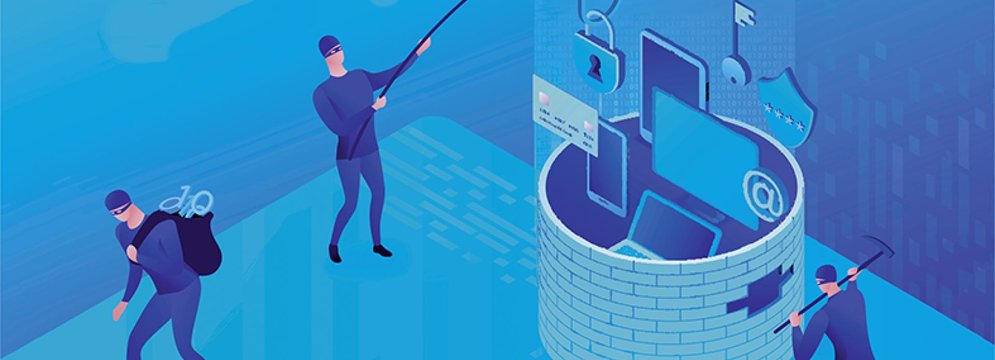
The majority of SMEs do not inform their employees about the dangers of using personal devices in telework
This is the figures obtained by various analyses, 51% of SMEs did not provide their employees with adequate computer equipment to work from home as part of telework.
In addition to this, only 34% of employees of very small businesses and SMEs reported receiving safety instructions from their employers on measures to work from home in good conditions from their personal devices. A fairly minimal figure in a context where there is an explosion in the amount of business data circulating outside the computer networks and systems of companies. In this regard, the cybersecurity company Kaspersky, in its latest study, described the importance for these small businesses to have a fairly clear security policy based largely on employee awareness.
This article will also interest you: The lack of discipline of French teleworkers
Working from home and through your personal computer is not something new. It is because of general confinement and the explosion of telework that has now become something fairly standard, the fact remains that many professionals already had this practice well included in their habits. However, the health crisis has demonstrated another facet of this process of remote work. Computer security. Before this practice went almost unnoticed even though it was not marginal. Today, it is the news and attracts more and more cyber criminals. While employers have been saving money by adopting this way of working, the ongoing global health crisis is forcing them to invest even more than they had imagined, particularly in the field of computer security. Because the teleworker no longer goes unnoticed, he is targeted and tracked down. Thus endangering a significant amount of sensitive digital data.
On the small and medium-sized side, investment in cybersecurity must be understood in the form of a necessity. According to Kaspersky's reports, 57% of company employees say they have not received adequate computer equipment to telework properly. Only one-third were able to make the effort to advise their employees on the safety measures to be adopted for the most suitable digital hygiene. These measures include the installation of Anti-Malware programs by the company itself, on computers and/or WiFi routers, and regular updates, applications and operating system used by employees.
However, 35% of employees acknowledged that they have stored or continue to store business information on home appliances. 25% prefer to store this information on the cloud. This clearly demonstrates the importance for companies to have adopted the above measures. "Both SMALLOs and start-ups have found themselves in a difficult situation and their first priority is now to ensure the sustainability of their activities and save jobs. It is therefore not surprising that the reflection on cybersecurity emerges instead in a second phase. However, implementing even basic computer security measures can reduce the risk of malware infection, financial fraud, or loss of business data. In addition, many cybersecurity experts make recommendations that companies can share with their employees to help them secure their devices. And of course, these requirements must be met after home isolation, when staff are likely to continue working remotely," noted Cécile Feroldi, B2B Marketing Director at Kaspersky France and North Africa.
At this point, the cybersecurity company recommends the following safeguards to the SME and SMEs:
– Install antivirus solutions on home devices used for telecommuting.
– Regular updates to operating systems and applications used in need of service and even out of work singing.
– Password protection at the access level, whether it's online accounts, the wifi network, and even the start-up of terminals. Dual-factor authentication is required.
– Protect home wifi connections to encryption.
– Using VPN network, when the employee would like to access either public wifi, or even the company server for any resources whatsy.
– Use encryption software to encrypt digital data, devices and even backups.
– Make important data backups on a regular basis. This will make it easy to restart the system in the event of a ransomware attack
– Provide employees with a reliable list of secure cloud services, how to be used to store or transfer digital information to the company.
– Organize awareness and upgrade training sessions on IT security as a whole
– Make available to employees, contact urgently to whom they could refer in the event of a computer incident.
Now access an unlimited number of passwords:
